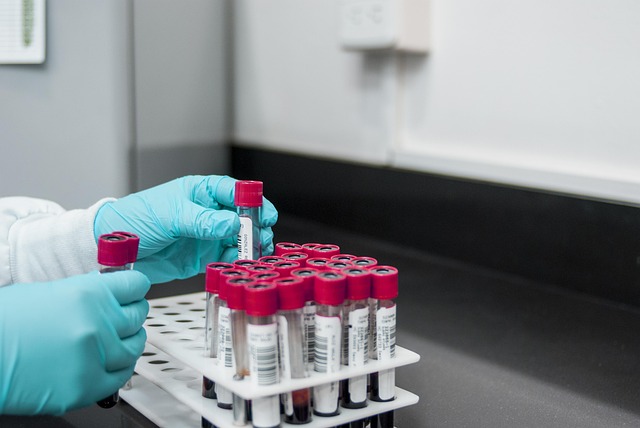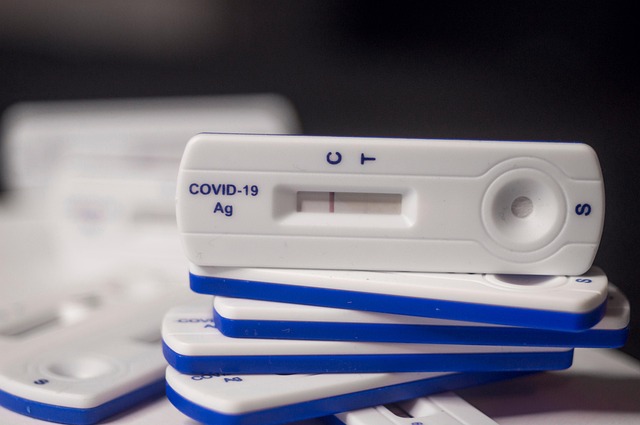Iron deficiency anemia causes fatigue, weakness, and other symptoms, requiring prompt medical attention. The Kidney Blood Test UK is a key diagnostic tool measuring hemoglobin, red blood cells, and kidney function to identify anemia types. Interpreting these results helps healthcare providers diagnose and manage iron deficiency anemia, preventing further health complications.
Iron deficiency anemia is a common yet serious condition, often caused by inadequate iron intake or blood loss. It’s crucial to identify and address this issue promptly. This article explores the process of diagnosing iron deficiency anemia through blood tests, with a focus on the UK’s standard kidney blood test. Understanding symptoms and common diagnostic procedures empowers individuals to seek necessary treatment, ensuring optimal health.
- Understanding Iron Deficiency Anemia Symptoms
- Common Blood Tests for Anemia Detection
- Interpreting Results: Kidney Blood Test UK
Understanding Iron Deficiency Anemia Symptoms

Iron deficiency anemia is a common blood disorder where your body doesn’t have enough healthy red blood cells, leading to poor oxygen delivery to your tissues. Symptoms can vary from mild to severe and often include fatigue, weakness, pale skin, shortness of breath, dizziness, and headaches. If you’re experiencing these signs, especially if they persist or worsen, it’s important to consider a kidney blood test UK to check for underlying iron deficiency anemia.
Many individuals with iron deficiency anemia may not experience any noticeable symptoms in the early stages. However, as the condition progresses, the body’s need for iron becomes more apparent. This can result in a range of physical and cognitive manifestations. Understanding these symptoms is crucial so that prompt action can be taken to address the issue, potentially preventing more serious health complications.
Common Blood Tests for Anemia Detection

Common blood tests play a pivotal role in diagnosing anemia, including iron deficiency anemia. One of the primary tools used in the UK is the kidney blood test, which assesses various components crucial for understanding anemia. This test measures levels of hemoglobin, the protein in red blood cells that carries oxygen. Low hemoglobin levels are indicative of anemia as it means your body isn’t getting enough oxygen-rich blood.
In addition to hemoglobin, the kidney blood test evaluates the number of red blood cells (RBCs) and their size. Iron deficiency can lead to a decrease in the number of RBCs or smaller-than-normal cells, both of which are identifiable through this straightforward yet powerful diagnostic method. These insights enable healthcare professionals to differentiate between various types of anemia, including iron deficiency, and tailor treatment accordingly.
Interpreting Results: Kidney Blood Test UK

Interpreting the results of a kidney blood test in the UK is crucial for accurately diagnosing and managing iron deficiency anaemia. These tests often include measurements of serum creatinine, estimated glomerular filtration rate (eGFR), and other markers. Elevated levels of creatinine or a low eGFR may indicate reduced kidney function, which could be a sign of underlying health issues affecting both the kidneys and blood cells.
In the context of iron deficiency anaemia, healthcare professionals consider these results in conjunction with symptoms and other laboratory findings. A combination of low haemoglobin (Hb) levels and impaired kidney function on the kidney blood test might suggest chronic anaemia or anaemia of chronic disease. In such cases, further investigation is needed to identify and treat the underlying cause, whether it’s inadequate iron intake, blood loss, or a medical condition affecting both the blood and kidneys.
Iron deficiency anemia is a common yet treatable condition, and blood tests play a crucial role in its diagnosis. By understanding the symptoms and utilizing appropriate blood tests, such as the kidney blood test UK, healthcare professionals can effectively identify and manage anemia. This ensures individuals receive timely treatment to improve overall health and well-being.
